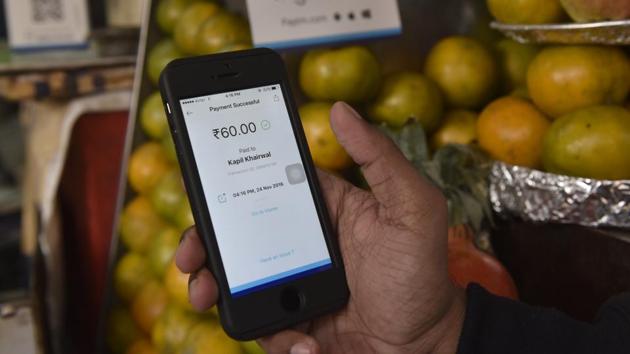How Jains plan to go cashless, and spread the message
The project, lead by women members of Jain International Trade Organisation (JITO) — an association of businessmen and professionals — will train volunteers to make more digital transactions...
This month, Mumbai’s Jains will inaugurate a programme to encourage the community to go cashless. The project, lead by women members of Jain International Trade Organisation (JITO) — an association of businessmen and professionals — will train volunteers to make more digital transactions. Each of the 52 branches of JITO, including eight in Mumbai, will train a group which will then teach another batch of volunteers, eventually covering every member from the community.

The programme will not be restricted to Jains; each volunteer will be expected to train their grocer and milk vendor to make electronic payments. “It is a ‘train the trainer’ programme,” said Sharmila Oswal, chairperson of JITO’s women wing, who explained that the programme was developed in the aftermath of demonetisation, when the government scrapped higher denomination currency notes.
The wider agenda of the programme is to shake off the Indian habit of preferring cash. Trishna Satra, a Mumbai-based member of JITO said that after the demonetisation in November, many businesses that traditionally dealt in cash shifted to electronic payments. “There is no empirical evidence, but digital transactions have increased tremendously,” said Satra.
India has been largely driven by cash. This is partly because one out of every four Indians does not have a bank account; three out of every four do not have access to Internet. Though the benefits of digital transactions are debatable - with many residents of rich countries preferring to use cash because of worries about privacy - Oswal said that going digital has advantages. “In India, going digital, on a broader side, can stop, or at least, reduce corruption,” said Oswal, whose family runs a business of manufacturing wastewater recycling systems.
There are other benefits when the economy makes more digital transactions. Cash deals have a hidden cost. Printing, storing, counting, transporting and replacing currency notes is expensive. One study estimated that the Reserve Bank of India spends over Rs20,000 crore annually to keep cash flowing in the country. To put this amount in perspective, the Brihanmumbai Municipal Corporation, India’s richest urban body, has an annual budget of Rs37,000 crore.
Also, paper currency, especially the lower denomination notes, has a short life and need to be replaced regularly. It is estimated that a Rs10 note goes around only for only two years before the battered bill needs to destroyed and replaced. Coins present another set of problems. If metal prices go up, it is possible that the metal used in the coin could have more value than the face value. When this happens, the coins could vanish from the market, ending up in illegal smelters.
While cash can be stolen, leaving very little trace, digital theft is easier to track and investigate. There are chances of getting cheated in an online transaction, but Oswal said that the training module will include sessions on how to be safe while using the Internet. “With the creating of mobile applications and e-wallets, digital transactions are user friendly,” added Oswal, “We will train them to be use digital payment forums safely.”
Satra said that they have a ‘task at hand, but her team call themselves ‘Jito Women Digital Warriors’ because they think they can be trend setters. “If we start with women, who are more likely to be the family member to interact with the grocer, the journey will be much easier. If they insist, the kiranawala will be forced to use an app,” said Satra.
The project will have impact beyond the confines of the small community — Jains form less than 0.5% of the country population, said Satra. “The Jains are very big in trading. Historically, they, like other trading communities, have been working on a cash basis,” said Satra. “But as traders they are the best community to take it across. The local kiranawala is very likely to be a Jain and they can encourage the customers to come on the digital platform.”
Also read: If the Indian economy grew 7% in demonetisation quarter, where is the party?
Stay updated with all the Breaking News and Latest News from Mumbai. Click here for comprehensive coverage of top Cities including Bengaluru, Delhi, Hyderabad, and more across India along with Stay informed on the latest happenings in World News.
Stay updated with all the Breaking News and Latest News from Mumbai. Click here for comprehensive coverage of top Cities including Bengaluru, Delhi, Hyderabad, and more across India along with Stay informed on the latest happenings in World News.





